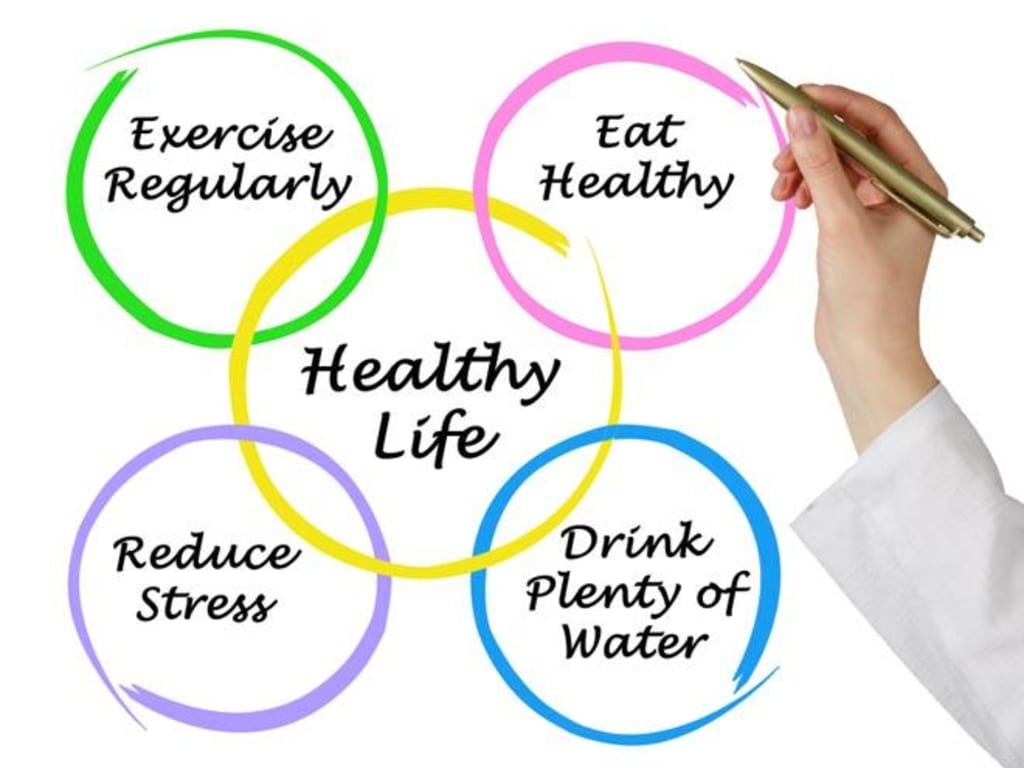Health Tips for Healthy Living
A healthy lifestyle involves a wholesome diet, quality sleep and regular exercise. But the way you feel and how you think is also very important

What is healthy living?
This article is intended to give tips to perusers concerning how they can improve or expand activities in their day to day existence to have a sound way of life; it isn't intended to be comprehensive yet will incorporate significant parts that are viewed as portions of a way of life that lead to great wellbeing. Notwithstanding the tips concerning how individuals should help solid living, the article will specify a portion of the tips about staying away from activities (the don'ts) that lead to undesirable living.
"Sound living" to a great many people implies both physical and emotional well-being are in equilibrium or working admirably together in an individual. In many occasions, physical and psychological well-being are firmly connected, so a change (positive or negative) in one straightforwardly influences the other. Subsequently, a portion of the tips will incorporate ideas for passionate and mental "solid living."
Healthy eating (diet and nutrition)
All people need to eat nourishment for development and upkeep of a sound body, however we people have distinctive sustenance prerequisites as babies, (kids), youngsters, youthful grown-ups, grown-ups, and seniors. For instance, babies might require taking care of at regular intervals until they step by step age and start to take in more strong food sources. In the long run they form into the more typical example of eating three times each day as small children. In any case, as most guardians know, children, youngsters, and youthful grown-ups frequently nibble between suppers. Nibbling is frequently not restricted to these age bunches since grown-ups and seniors regularly do likewise.
Tips:
- Eat three healthy meals a day (breakfast, lunch, and dinner); it is important to remember that dinner does not have to be the largest meal.
- The bulk of food consumption should consist of healthy foods, such as fruits, vegetables, whole grains, and fat-free or low-fat milk products.
- Incorporate lean meats, poultry, fish, beans, eggs, and nuts (with emphasis on beans and nuts) into a healthy diet.
- Choose foods that are low in saturated fats, trans fats, cholesterol, salt (sodium), and added sugars; look at the labels because the first listed items on the labels comprise the highest concentrations of ingredients.
- Control portion sizes; eat the smallest portion that can satisfy hunger and then stop eating.
- Healthy snacks are OK in moderation and should consist of items like fruit, whole grains, or nuts to satisfy hunger and not cause excessive weight gain.
- Avoid sodas and sugar-enhanced drinks because of the excessive calories in the sodas and sugar drinks; diet drinks may not be a good choice as they make some people hungrier and increase food consumption.
- Avoid eating a large meal before sleeping to decrease gastroesophageal reflux and weight gain.
- If a person is angry or depressed, eating will not solve these situations and may make the underlying problems worse.
- Avoid rewarding children with sugary snacks; such a pattern may become a lifelong habit for people.
- Avoid heavy meals in the summer months, especially during hot days.
- A vegetarian lifestyle has been promoted for a healthy lifestyle and weight loss; vegetarians should check with their physicians to be sure they are getting enough vitamins, minerals, and iron in their diet.
- Cooking foods (above 165 F) destroys most harmful bacteria and other pathogens; if you choose to eat uncooked foods like fruits or vegetables, they should be thoroughly washed with running treated (safe to drink) tap water right before eating.
- Avoid eating raw or undercooked meats of any type.
Tips for special situations:
About the Creator
Mr Healthy Here
Get the latest expert fitness advice on healthy workouts, fitness challenges, muscle recovery, workout trends






Comments
There are no comments for this story
Be the first to respond and start the conversation.